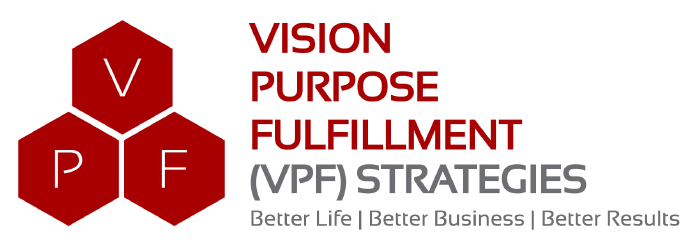Organizational culture can be a catalyst to your business growth; if you take the time to be intentional in building a culture that aligns with your organization’s goals and values.
According to research by pwc, organizations with a distinctive culture are more likely to see an increase in revenue, employee satisfaction as well as customer satisfaction.
Culture is to companies what lifestyle is to persons. As such, companies like people act in ways consistent with their beliefs and attitudes encoded in their culture.
What is culture then, and what factors influence an organization’s culture?
According to Gallup, an analytic consulting firm on leadership and organizational issues, culture is defined ‘as the way we do things around here.’
In essence, what and how an organization does both internally and externally impacts the way her stakeholders perceive her and relate with her i.e. the employees, vendors, customers, government agencies, etc.
Industry and businesses vary, so there’s no one size fits all when it comes to culture. In fact, the best approach to consider when developing culture is to ensure that your organization’s culture aligns with your goals and values, both of which are key drivers of your business strategy.
Factors influencing an organization’s culture includes:
- Values
Your core values provide your organization a framework on how you operate both internally and externally. For instance, you may want to consider: Innovation, Openness, Convenience, Agility, etc as your core values. At VPF Strategies, we endeavor to embody the following core values just to name a few:
Deliver Value-Based Service—Being in the business of performance we focus on ensuring every interaction with our clients adds value in a qualitative and quantifiable manner.
Intentionality and Trust—Being intentional is how we build relations. By actively listening to our client’s needs we gain their trust, and thereby co-develop strategies that deliver excellent results.
Focus on what Matters—We set audacious goals; celebrate the wins, endure the challenging moments that arise in the process and with optimism learn as much as we can along the journey.
- People
Your employees’ attitudes and behaviors determine how efficient your organizations run and whether or not your customer’s experience the satisfaction they deserve.
In addition, having a clear set of values is critical in attracting the right talents. In post pandemic era, employees have the latitude to work from anywhere they choose.
In this regard, one of the key influencing factors is an organization’s culture. Some organizations have built a culture of flexibility thereby attracting some of the best talents globally. Others leverage virtual work yet others have opted for a hybrid workplace.
In fact, working virtually or hybrid has become the norm, and those able to manage this arrangement while empowering their workforce with the right tools will remain competitive. Therefore asking your potential hires what matters to them will guide you in making the right hiring decisions.
- Practice and Rituals
What is your stand when it comes to employees’ training and development, reviews and feedback. Better yet, how do you conduct meetings? Do you have a clear framework on how you communicate with your staff? These are critical issues that impact culture, and depending on how well you’ve mastered the art and science of building a winning culture; some new hires may find your organization to be amongst the best place to work.
- Business Structure
Organizational structure refers to your business internal processes and procedures in place to ensure a smooth flow of operations. At best, organizational structures dictates the degree of hierarchy among your staff. This could range from low, moderate to high as it relates to issues of autonomy.
As a founder, it’s your choice to determine whether you want your employees to have the autonomy and discretion, or work with the kind of rigid and precision only found in military bases—you get to choose.
How autonomy leads to creativity and innovation
- Place and Physical Settings
Where and how of your workplace matters. Your workspace design has a subtle but a significant impact on your culture. In post pandemic, hybrid work has become a norm meaning that you as the employer must ensure your employee’s have the right office tools and technology for productivity.
- Laws and Regulations
Local, state and federal laws can have an indirect or direct impact on your organizational culture as they may dictate how your business operates. For instance, if you are running a construction business, safety and environmental laws are likely to influence your overall operations and bottom-line.
- Vendors and Customers
Your business reputation is key to building a successful and profitable business. Your vendors and customers have core values that direct their business too. So, they too expect the way you operate your business to align with their organizational values and goals.
For instance, if one of your core values is convenience it would be difficult to have a product supplier who does not share in this regard. Considering this value alone could make or break your business if your customers expect products delivery say in 2 days only to actually receives deliveries in say 4 or more days just because your vendor cannot meet your timeline.
In a nutshell
An organizational culture is not only a reflection on a company’s values, business practices and people, it’s also a critical component of your organization’s success.
Simply put, when culture is correctly aligned with the business objectives and values; your organization becomes nimble, efficient and effective in how it handles its daily operations for sustained success.
As a business owner, building, maintaining and refining your company’s culture is important to who you hire and how well you retain your talented employees. This is why building a winning culture begins with you.
What are your beliefs and values?
Once you have clarity, it’s your responsibility to model these values every day, especially during challenging times. By so doing, you’ll inspire your employees to live, and embody them as well as see their importance.
What is your culture like? If you are yet to launch your business, what do you want your culture to be like?
Share your thoughts on the comments below. Otherwise, if you would like to recalibrate your current culture or develop one that is more up-to-date with your current operations, VPF Strategies can help. Feel free to schedule a 30-minute complimentary session here.



